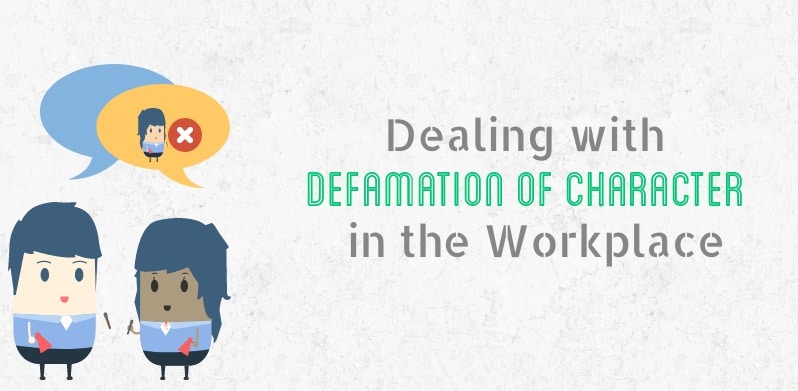
Defamation of Character in the Workplace
Rumours and gossip in the workplace can be damaging to morale, individual employees and the standing of the business. Spreading damaging information about an individual could be seen as defamation of character. This could lead to legal troubles for the business and the people spreading the information.
There are times in the workplace however, where an individual may need to share negative information about another person. For example, making complaints about inappropriate behaviour, giving a reference, or a manager gathering evidence from staff about a complaint. So, what exactly is defamation of character in the workplace, and how do you handle it?
Defamation in Australia
Under common law in Australia, (that is, law arising from court decisions), material is classed as defamatory if it:
- Exposes the victim to hatred, contempt or ridicule;
- Lowers the victim in the view of members of society;
- Causes the victim to be shunned or avoided by others.
Uniform defamation legislation exists across all Australian states and territories. However, the common law definitions are used to allow the law to remain flexible to changing social attitudes and norms, (see the case study below).
Defamation of character in the workplace
The most important defamation protection for business is known as ‘qualified privilege’. Qualified privilege allows for free communication between certain parties without the risk of a defamation action. This is where the person communicating information to a third party has a legal, moral, or social duty to do so. It is also where the third party has an interest in receiving it.
While this might sound like a lot of legal jargon, it is relatively simple in practice. For example, a manager is contacted by another business to give a reference for a job applicant. The manager states the applicant was asked to leave the business for bullying. While this information probably lowers the opinion the other business has of the applicant, qualified privilege protects both parties from defamation action. The manager has a moral duty to communicate this information to a potential employer.
Similarly, a person makes a complaint to a manager about a colleague who is harassing them. The manager can reveal this information to other staff, but only for the purposes of substantiating the claim. As part of the duty of care to both the accuser and the accused, the business has a legal and social duty to collect the facts before taking action. However, if either the manager or the complainant reveals the information to other staff purely for gossip or malice, a defamation claim may be substantiated.
Avoiding defamation in the workplace
When discussing a person with other employees, managers, or another third party, there are two elements to consider. First, whether the other person is the correct person to be hearing it. For example, a complaint should be made to a manager, rather than talked about with other employees. Second, that the comments are said in truth, and not with malice, (i.e. as gossip).
A business should make sure there are clear lines of communication and policies for addressing complaints in the workplace. This ensures employees know who to go to with issues, and managers have a consistent process for dealing with them.
Case study: Tassone v. Kirkham [2014] SADC
There is an interesting example of why using common law, rather than legislation alone, helps the law keep pace with rapidly moving social norms and attitudes.
In South Australia in 2014, a Correctional Services prison officer sent an email from a colleagues account to 2300 people in the department. The email read, “Hello people, just a note to say that I am a homosexual and I am looking for like-minded people to share time with.”
Notably, the judge in this case said the assertion the employee was gay was not defamatory “in the general community of South Australia”. The defamation was upheld on the remainder of the email which implied the plaintiff in the case was of “loose moral character”.
Ensuring that you’re across the legislation and requirements regarding defamation of character in the workplace is essential for the well-being of your employees, and your business.